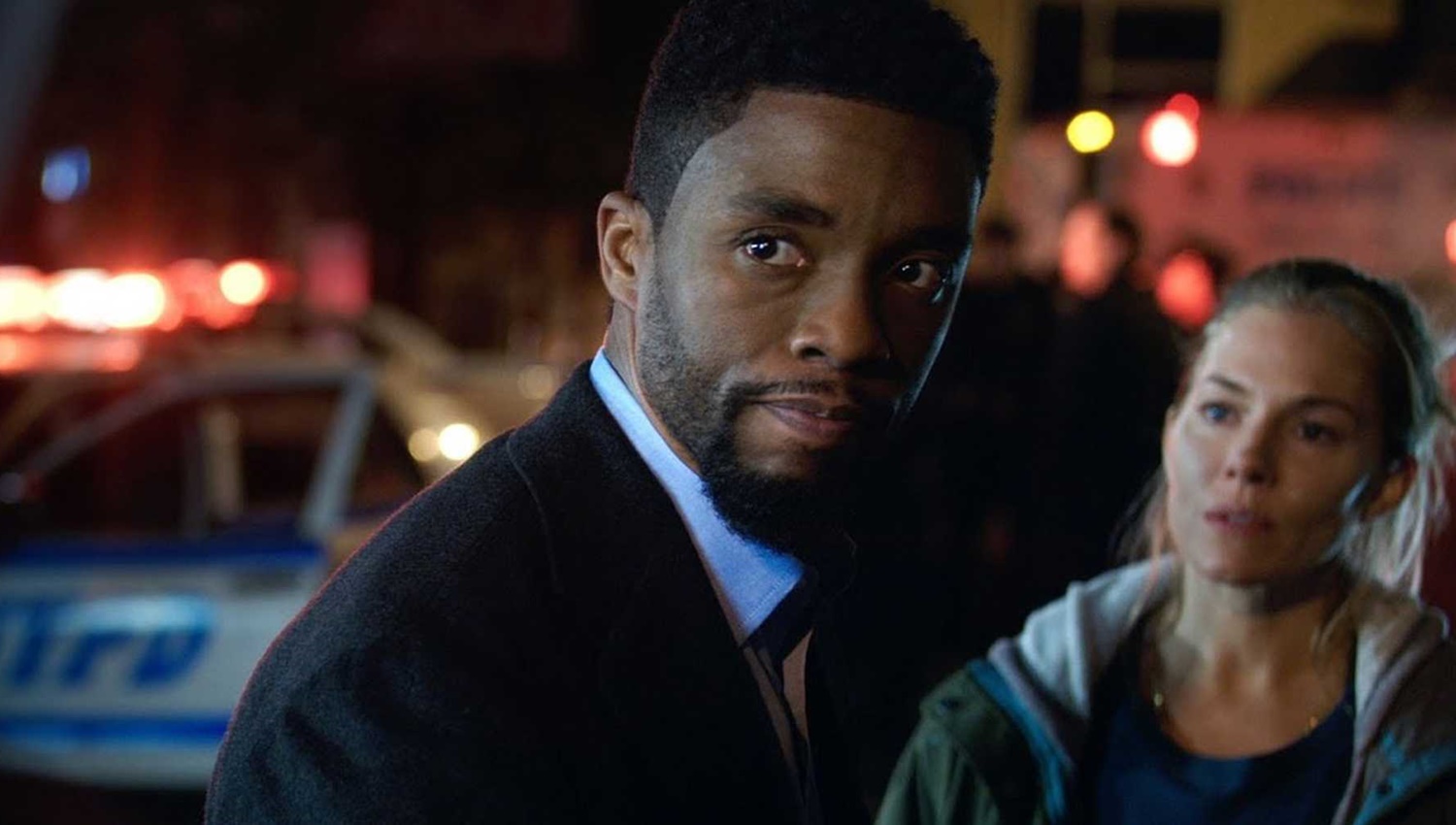
21 Bridges
Dustin Chase
Within three minutes of the first frame, the word Avenger is used. 21 Bridges is the first film Black Panther himself Chadwick Boseman has led since putting on the spandex. The directors of Avengers Endgame, Anthony Russo, Joe Russo, are also producers on the film. Brian Kirk makes his directorial film debut after a long stint in television, including directing three episodes of Game of Thrones (2011). It’s an action packed film for sure, clever concept about closing the NYC bridges to capture suspects, yet when it comes to motivations, the script has little patience for nuance. Adam Mervis story is ultimately about corruption within the police force, cops can’t afford a decent place to live or support their family on their salary. The screenwriters focus on the intersection of a robbery and illegal dealings then spent over 2/3 of the running time chasing a sub-villain.
Eight New York City cops have been killed responding to a robbery involving lots of cocaine. Career detective Andre Davis (Boseman) is lead on the quickly developing case but every policemen in the city is being pulled into the field as the political leaders decide to close all bridges in and out of Manhattan so the killers can’t escape. It’s after 1am and Davis is given until 5am to flush out the accused. Davis is being investigated by internal affairs so he knows a thing or two about something not smelling quite right. As captain of many of the slain officers, McKenna (Simmons) is running his own operation to find the killers without mercy. Davis is paired with narcotics expert Frankie Burns (Miller), also from McKenna’s precinct, to assist in their cat and mouse hunt.
The plot becomes painfully obvious hidden behind the all too simple “cop chasing bad guys” through the city routine.
Boseman inhabits the role of Detective Davis like a cool-headed Denzel Washington, confident that he will solve the case. His confidence allows the supporting actors to bounce off him with their rage and insubordination. Jurisdiction and rank is something the script only briefly explores, and will leave some audience members confused about who is in charge in a particular situation and why. Simmons bookend screen time along with the stereotypical casting doesn’t lend much suspense to his role in the plot. Likewise for Miller, whose performance is riddled with shots of her mugging into the camera silently screaming her hidden motives. The plot becomes painfully obvious, hidden behind the all too simple “cop-chasing-bad-guys” through the city routine. By the time Davis gets his hands on the evidence audiences have already guessed or been shown, little time remains for the character to do anything with it. So we go out on a cowboy saloon shootout type of ending, wrapping things up over one bloody conversation.
When one character begins to explain reason why cops can’t make a living, “it’s not about Cadillacs and Rolexes,” we finally see where this story should have been spending more of it’s time. In many ways the non-surprising ending invalidates all action in the first two thirds. A seasoned feature film director might have recognized this and corralled the movie into something more than just the guy from “Black Panther” shooting people. Alex Belcher and Henry Jackman’s score is quite powerful and dramatic, but it never appropriately accompanies the beats of the film. The closing credits track oversells the finale, reiterating again how the filmmakers missed the mark.
Final Thought
Solid action and suspense sequences leave little time on the backend to explore more interesting and relevant topics about corruption and financial motivations.
